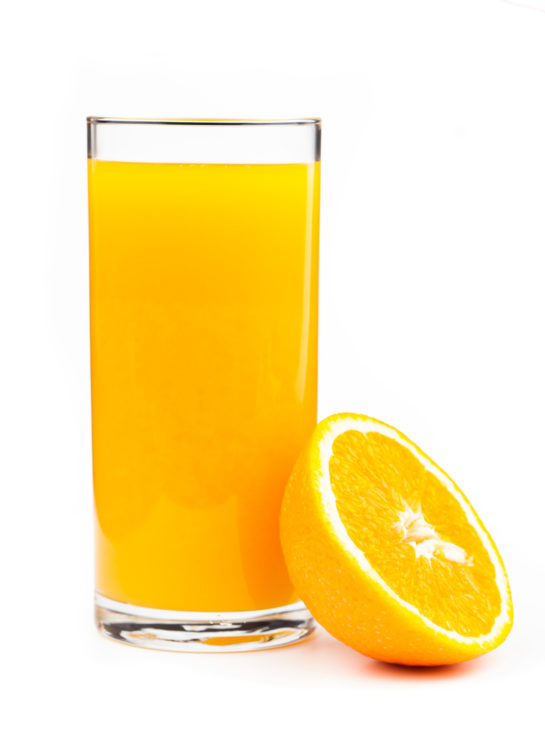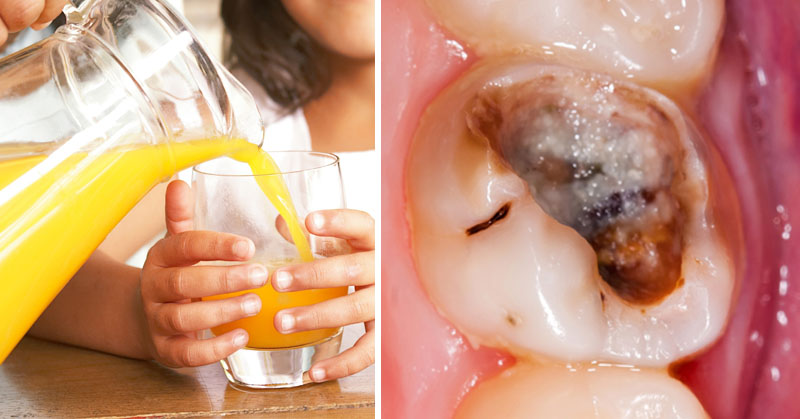What if I told you fruit juice was no healthier than a glass of soda? You’d probably call me crazy, right? Well this isn’t coming from me, folks. A number of experts, including clinical nurse specialist JJ Virgin, have made that very declaration.
Confused? Don’t worry; in just a few points we’ll clear this all up and you’ll know exactly what makes commercial fruit juice so bad.
3 Reasons To Stop Buying Fruit Juice
#1 – Sugar

Health expert Corrie Pikul says that when manufacturers strip a fruit of its skin and pulp, the resulting juice is ‘distilled down to its sweet essence.’ In other words, you wind up with a very high amount of natural fructose in fruit juice – 5 to 8 teaspoons per cup, to be exact.
Now, just because that sugar’s natural doesn’t mean it’s good. Au contraire, in fact.
“Research shows that it’s the fructose part of sweeteners that’s the most dangerous,” writes Dr. Jonny Bowden. “Fructose creates insulin resistance and significantly raises triglycerides (a risk factor for heart disease). It also increases fat around the middle which in turn puts you at greater risk for diabetes, heart disease and metabolic syndrome.”
So does that mean eating fruit is also dangerous? No.
“When you eat fruit, the amount of fructose you ingest is significantly lower than in sweetened beverages,” says Dr. Mark Hyman. “The metabolic effects of it are different because the increased intake of fiber, vitamins, minerals, phytonutrients and antioxidants helps slow absorption and improve metabolism.”
Speaking of fiber…
#2 – Fruit Juice Has Very Little Fiber
You know all those little white pulpy bits that come with an orange? That’s where the fiber lives. According to World’s Healthiest Foods, that pulp is usually removed during the fruit juice manufacturing process. The same goes for the apple juicing process, during which the fruit’s skin – a large source of fiber – gets removed.
Even if you buy fruit juice with pulp, it’s very unlikely the amount of fiber that pulp provides will come near to what the fruit originally contained.
#3 – Fruit Juice Is Highly Acidic

High sugar content isn’t the only parallel we can draw between fruit juice and soda. There’s also acidity to consider; both soda and fruit juice wear away at your tooth enamel over time, putting you at a significant risk for developing cavities.
Of course, this is made worse by the high sugar content in fruit juice, which will feed bacteria that in turn creates even more acid in your mouth.
Should You Stop Drinking Fruit Juice Altogether
No way! What you should stop is purchasing commercial fruit juice. As far as fiber goes, you can easily circumnavigate the issue of pulp exclusion by making your own juice at home and tossing the skin/pulp in with the fruit itself.
That said, you still ought to limit the amount of fruit juice you drink. This will ensure you don’t get an amount of acid in your mouth and body that negates the benefits provided by whatever fruit you’re drinking.
You might also want to try juicing vegetables. This will provide a similarly fresh beverage with significantly less sugar. Check this out to hear what David has to say about vegetable juice.
Are you thirsty for more juicy details on this topic? Check out the following video from Unnatural Vegan!
https://youtu.be/kxnKFU_sz0g
Sources:
DentalCareStamford.com
MindBodyGreen.com
World’s Healthiest Foods
Huffington Post
Oprah.com


